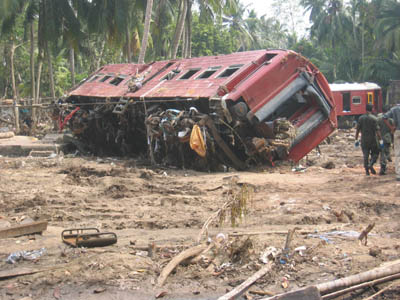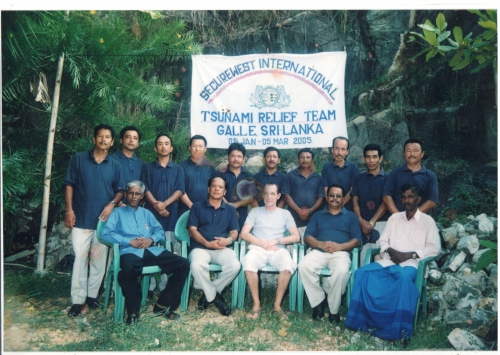17th December 2014 Colombo, Sri Lanka
How will we remember?
The 26th of December 2004 is not a day the world will easily forget.

An earthquake measuring 9.3 on the Richter scale off the coast of Indonesia triggered one of the deadliest natural disasters in recorded history: a monstrous tidal wave that struck the coasts of at least thirteen countries, killing nearly 300,000, of whom over 35,000 were in Sri Lanka and more than 100 were in the Maldives. And even where it didn’t kill, the Boxing Day Tsunami brought devastation and despair.
Ten years on, how do you remember an event like that?
In her 2007 book Rhythm of the Sea, written for the Hambantota District Chamber of Commerce, Ramya Chamalie Jirasinghe writes that “figures and statistics, the only objective evidence of the tragedy, convey little of the loss. On the other hand, memories are subjective and immensely personal; even those captured on film or paper. The unarticulated horror is that time will dissipate the magnitude of the disaster… This tragedy is too large and too horrific to be understood from one place and one time.”

This series – ten blogs for ten years – is our contribution to that act of remembrance.
We’ve asked people from across Sri Lanka, as well as in the UK with a strong connection to Sri Lanka, to look back on the tsunami and their response to it, and to tell us about its enduring impact on them as individuals, or on their organisations. We have school teachers and philanthropists, conservationists and cricketers, volunteers and professionals, first time bloggers and established authors. Some have chosen to talk mostly of the present, others look back at their involvement in the immediate aftermath.
Many of the stories are of instinctive and unbounded generosity. In the hours following the wave, thousands of people sprang into action. In Galle, British expatriates like Becky Hayes, Ivan Robinson, Rory Spowers, Oliver Francis, Olivia Richli, Eduard Hemple and others set up Project Galle, a tsunami relief trust that became a driving force behind local aid supply. They pooled resources and asked everyone they knew for money; established a database on those affected and their immediate material needs; drew on their network of friends to coordinate the purchase and distribution of supplies. Once other aid groups arrived, Project Galle co-ordinated relief efforts with them. Two months on, they were helping over 35,000 people – serving over 60 camps for displaced people along a 36km stretch of coast. As Ivan, now a Consular Warden for the British High Commission, said, “It was a time when nothing mattered but humanity.”

Others are stories of growth, unexpected changes in direction for individuals or organisations. When the tsunami struck, Rani was the mother of four children, the wife of a fisherman and the victim of an abusive partner. Her two older children were swept away by the tsunami and her house destroyed. In the immediate aftermath, Rani came into contact with local and international NGOs for the first time in her life. Women In Need (WIN) provided her with immediate shelter and access to food. They also provided emotional counselling and support. As she put her life back together, Rani became increasingly associated with WIN. She got a protection order against her violent husband, moved into a shelter and sent her surviving two younger children to school. She now volunteers as a community support officer: “The tsunami made me realise that I was strong”, she says.
This series is a tribute to all those who responded to the Tsunami with such generosity of purse and spirit, and to the many who continue to do so.
Other blogs in the series: